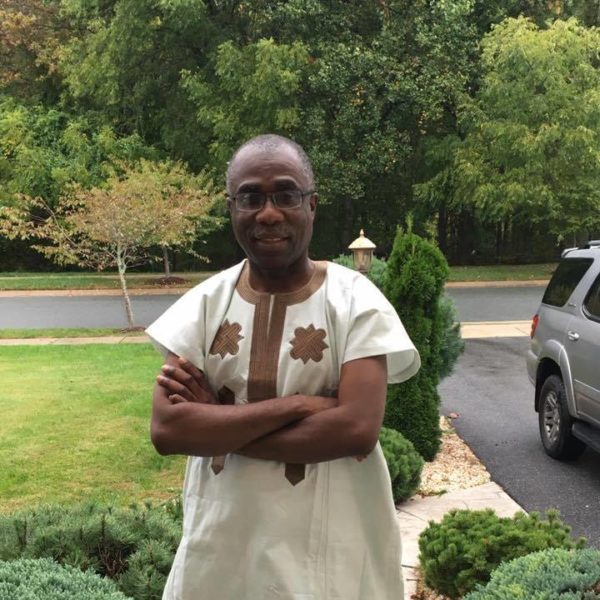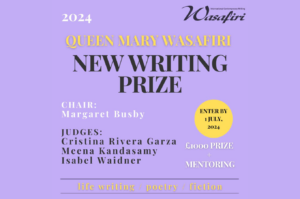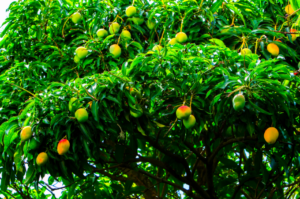
In a Twitter chat on SynCity’s “Literary Lords and Ladies” series, Ikhide R. Ikheloa said that the Caine Prize “has degenerated into mediocrity again,” “has regressed,” and “struggles to be relevant.”
Here is an excerpt from the interview, conducted by SynCity founder Cynthia Osuchukwu.
INTERVIEWER
The whole world read your rants when the shortlist was released two weeks ago. What are your thoughts on the stories?
IKHIDE R. IKHELOA
They are mostly disappointing. I am appalled that at least three of the pieces made it into the Caine Prize shortlist. It just seems as if the prize has degenerated into mediocrity again.
Is the Caine Prize for African Writing now a problem in search of a solution? After reading the mostly mediocre pieces on the 2018 shortlist, it just seems that after a decade of some innovation, the prize has regressed.
INTERVIEWER
When you say the stories are mediocre, doesn’t it translate to you questioning the judgement of the judges?
IKHIDE R. IKHELOA
Not really. You work with what you have. I worry that African writers are too fixated on winning prizes; they are writing crap that fits what they think the prize judges will like! All we seem to hear of these days are about folks winning prizes! Nonsense!
INTERVIEWER
What makes a story mediocre? The fact that it has traces of poverty porn? Don’t you think those who write should be left to write?
IKHIDE R. IKHELOA
Yes. Those who write should write, those who read should read. There are lovely pieces that have been written that are filled with misery. It’s not about the theme, it’s about the writing. It’s awful, and poorly edited. These stories were not ready for prime time.
Stacy Hardy’s “Involution” is the only redeeming effort on the 2018 Caine Prize shortlist. She shows muscular writing, discipline, a brilliant, engaging piece that distinguishes itself from the others by not being written in the first person. Read that and rest!
Wole Talabi’s “Wednesday Story” gets an A for effort, and credit for some innovation in fusing Yoruba folklore with that of the West. It needs an editor and a weed wacker to prune it into a disciplined story. Still, I’ve seen more creative stuff on social media. SMH!
INTERVIEWER
What is the way forward? Do we seize pens from writers until they are accountable or should we get judges who are ready to really judge?
IKHIDE R. IKHELOA
I don’t care. I am a reader-writer who doesn’t need the Caine Prize or any prize to enjoy writing. Young Africans are doing cool 3-D narratives on social media, taunting orthodoxy and engaging us with exciting work and a new paradigm of storytelling! I am good!
The Caine Prize was instituted in 2000; there was no social media then; today, orthodox narrative struggles to engage readers in Africa used to the 3-D call and response of social media. The Caine Prize struggles to be relevant but stereotypes and tired stories won’t help.
INTERVIEWER
At the end of the day, who do we blame? Writers hungry for sustenance? The West who hold the purse strings? Some others?
IKHIDE R. IKHELOA
I blame us. We are doing great work, but we are waiting for the West to bless our hustle – with a fistful of dollars!
Let me say here now that the Caine Prize is in search of a fresh purpose; today’s Africa is not really the postcolonial Africa of old, and all prizes targeted at African writing should reflect the new realities of writing and Africa in the age of the Internet.
Memo to the Caine Prize folks: It doesn’t have to be all about issues. Just tell me a story, any story.
The mostly lazy, predictable stories that made the 2011 shortlist celebrate orthodoxy and mediocrity. They are a riot of exhausted clichés even as ancient conflicts and anxieties fade into the past tense.
Read the full interview on SynCityNG.









Cyber Bully July 10, 2018 09:31
I have to disagree with Ikhide when he refuses to blame the judges and says "you work with what you have," meaning that he thinks that African Writers are the problem. I say BLAME THE JUDGES! Unless you are suggesting that Brittle Paper, Enkare Review, Short Story Day Africa, Prufrock, JRB, Jalada Africa, Kalahari Review, Writivism, Aerodome, Saraba, Bakwa etc etc exclusively publish mediocre works that pander to the Western audience's disgusting needs. I refuse to accept that in 2017 all African writers showed up in solidarity to pen down incredibly substandard literature. If anything, and especially if we are to conclude by a majority finding that the Caine Prize Shortlist 2018 was poor, we are supposed to call out the judges. We should express our disgust at the writers on that panel, the Dinaw Mengestu's of this world. We cannot make this a Caine Prize problem when the final decision rests on judges who are African writers most of the time. If the judges are doing a terrible job we need to ostracize them! Remind ourselves loudly that these folks do not speak for us, just like Chinua Achebe decided that Conrad did not speak for him! We cannot have a bunch of people who claim the African inheritance and are out there to propagate the idea that we are stupid, untalented and mediocre. Literature is powerful. It influences how the world perceives a race. That's why we tell our stories, to claim our stake in the human story. There's nothing wrong with poverty, all Eastern European literature is about poverty. But dignified poverty. The characters are always trying to make war with their condition, not trying to find a way to escape to America (which seems to be the default setting of every African character to come out of a work of literature). Hell, I won't even survive in America myself! I would sooner swim to France! Am I to assume that the next time I buy a new Mengestu novel, a Shoneyin novel, a Rose-Innes novel, that what I found in a Caine Prize story is what I will find in this novel?